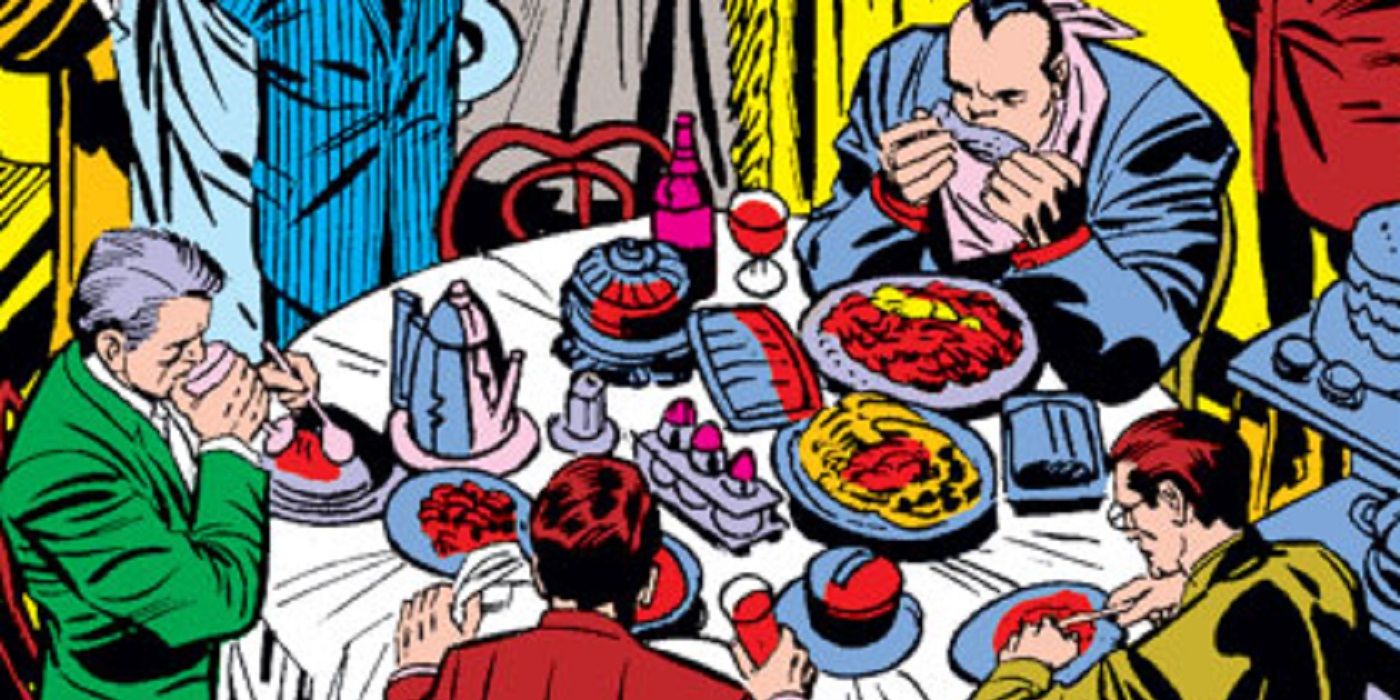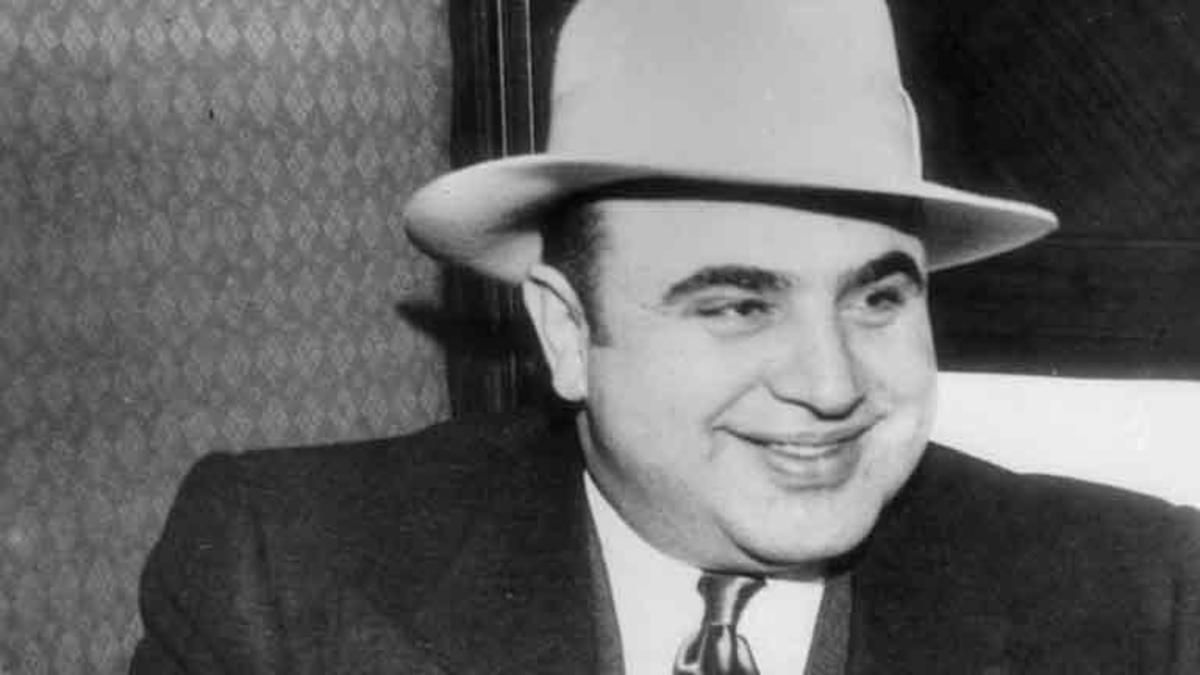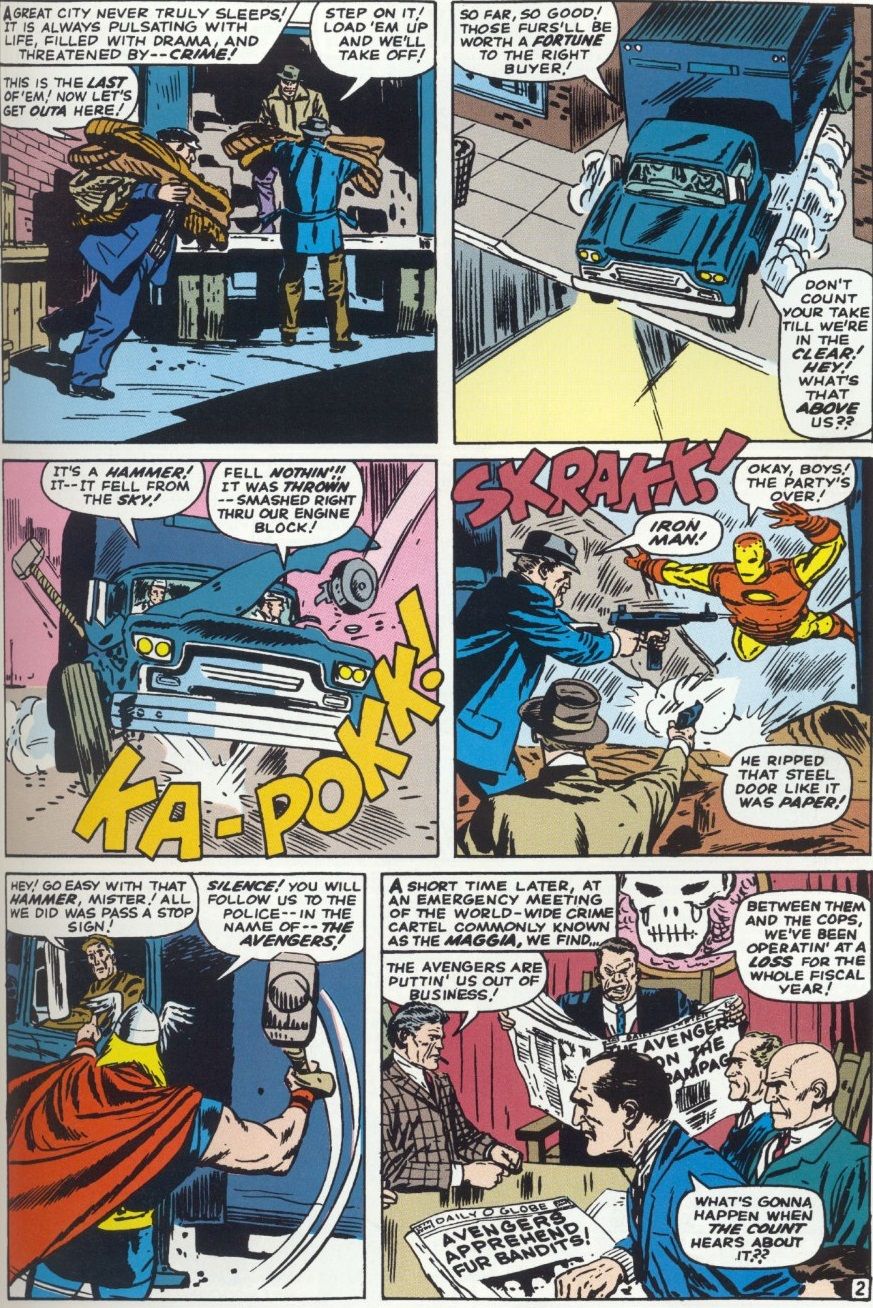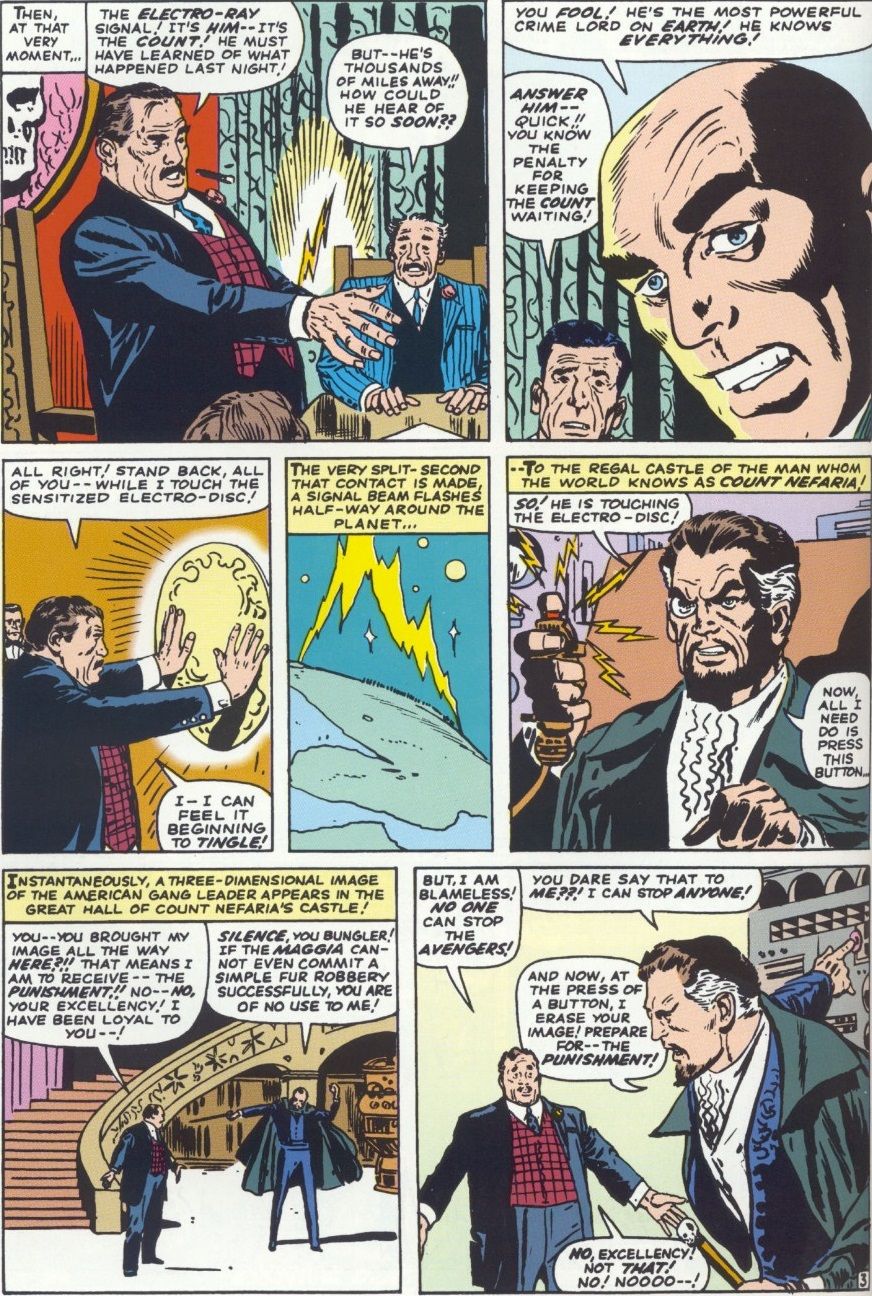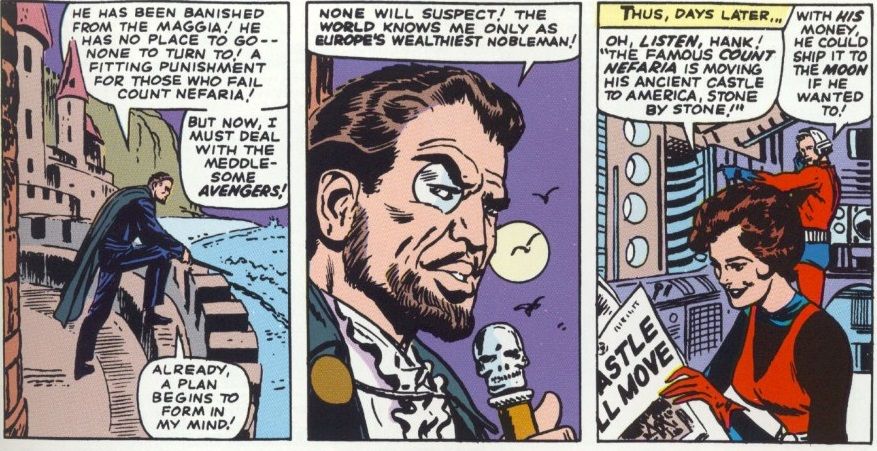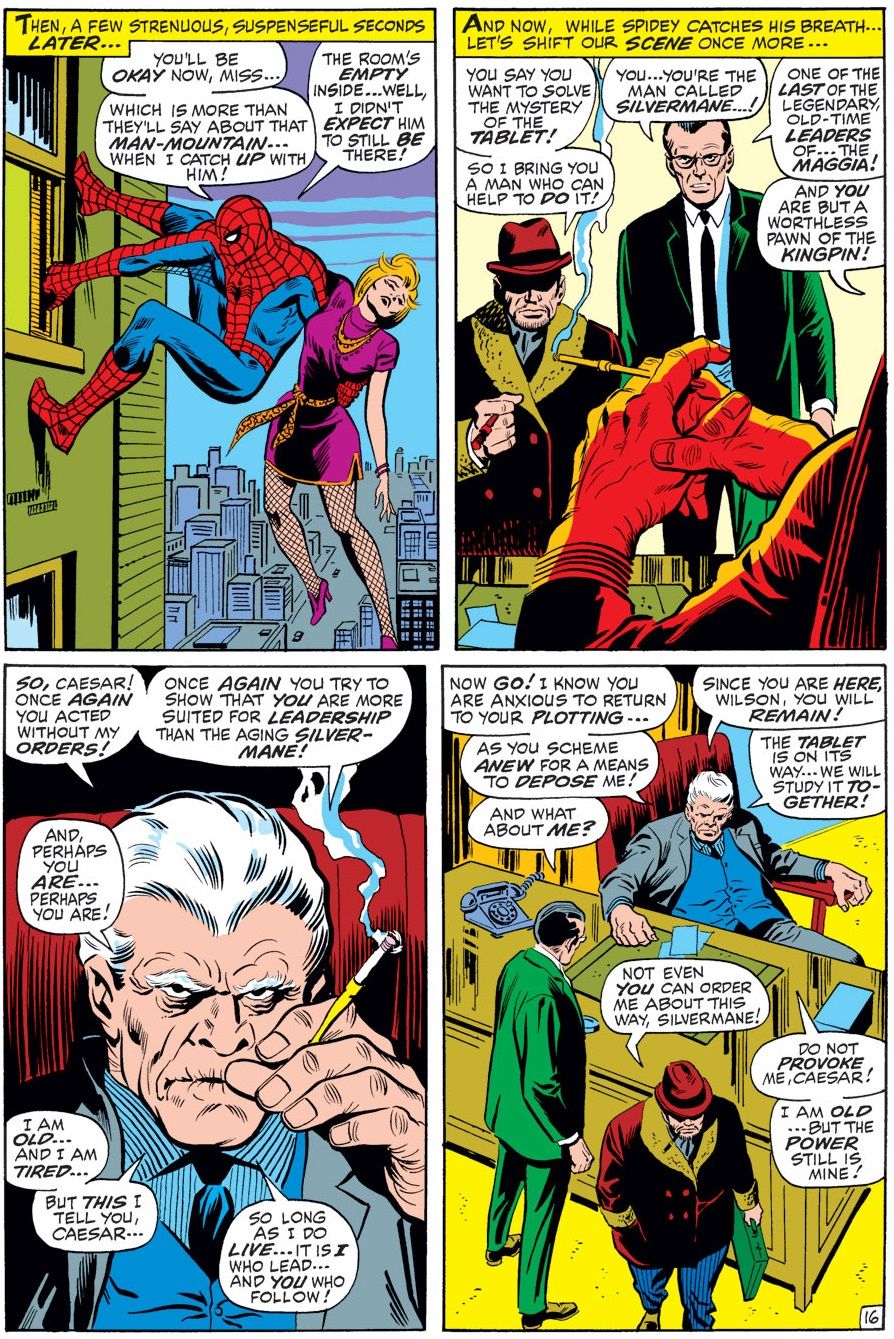This is "My Name It is Nothin'," a look at when comic books guest star celebrities, but their names are changed so as to avoid any legal problems. Today, we look at a unique example of this scenario, where, instead of it being a specific celebrity, we will look at a crime organization that gained celebrity status on its own - the Mafia!
The Mafia first came to widespread national attention during Prohibition, where gangsters became almost mythical figures in the newspapers, with Chicago mob boss, Al Capone, being the most famous of the bunch...
After Prohibition ended, mob boss Lucky Luciano successfully came up with a more organized version of organized crime and this is the version of the Mafia that became very popular in popular culture from the 1950s to this very day.
Now, here's the thing. On the one hand, Italian-American groups, in general, were not fans of the portrayal of the Mafia in popular culture as it lent a whole lot of negative stereotypes to the depiction of Italian-Americans. It really is crazy how Italian-Americans during this period rarely seemed to get all that many portrayals other than being shown as criminals.
When Mario Puzo released the hit novel (which became the hit film) The Godfather, there was a number of protests to the book and film. Some of these protests were actually organized by the Mafia themselves. The original title for Puzo's book was The Mafia and they successfully protested them enough that they changed the name of the book to The Godfather. We're not talking just penny-ante protests, either, there were some hardcore stuff, like over 100,000 people at one protest in June of 1970!
So there was a decent amount of outrage to the depiction of the Mafia in popular culture and when you have someone like Martin Goodman, he was generally quite willing to change things if he thought it might offend people. So there is something to be said for Marvel Comics not wanting to outrage the same groups that were later mad about The Godfather.
Secondly, there is the argument that perhaps you don't want to be TOO realistic about stuff like this in superhero comic books period. You know, it takes you out a little bit from the fantastical elements of the superhero comic book if you also work in real life bad guys like the Mafia into the book.
Finally, and perhaps most importantly, organized crime had long had a connection to the companies that distributed comic books, who were the same people who controlled the distribution of magazines. The way things worked back then is that you would have a national distributor (at this point in time, Marvel was distributed by Independent News a distributor that was owned by National Comics, now known as DC Comics) and they would work out deals with the smaller independent distributors who serviced different areas of the country (the biggest cities would have multiple distributors). Due to this, in effect, monopoly over local distribution, these local distributors were key targets for organized crime, as it was a constant influx of income with not a TON of oversight. So while I certainly wouldn't dream of tarring everyone with the same brush, it is fair to say that at least SOME of the distribution of comic books in the 1960s was handled by companies who had dealings with the Mafia.
So when it came time to introduce the Mafia into Marvel Comics, well, they went a whole different direction...
Page 2: [valnet-url-page page=2 paginated=0 text='Enter the Maggia!']
In 1964's Avengers #13 (by Stan Lee, Don Heck and Dick Ayers), Lee introduced the Maggia, the Marvel version of the Mafia...
A few years later, Lee introduced Silvermane in Amazing Spider-Man #73 (art by Johns Buscema and Romita), which expanded the Maggia crime family in a big way...
Over the next few years, they continued to expand it.
It has lessened its importance in the last few decades, as people began to write more generalized crime stuff. For instance, when Frank Miller took over Daredevil, he pulled back on the Maggia aspect of Wilson Fisk's crime dealings.
Okay, people, there are obviously TONS of great examples of this sort of thing in comic book history, so get thy selves to thine e-mail and send in suggestions for future editions of My Name It is Nothin' to brianc@cbr.com!

